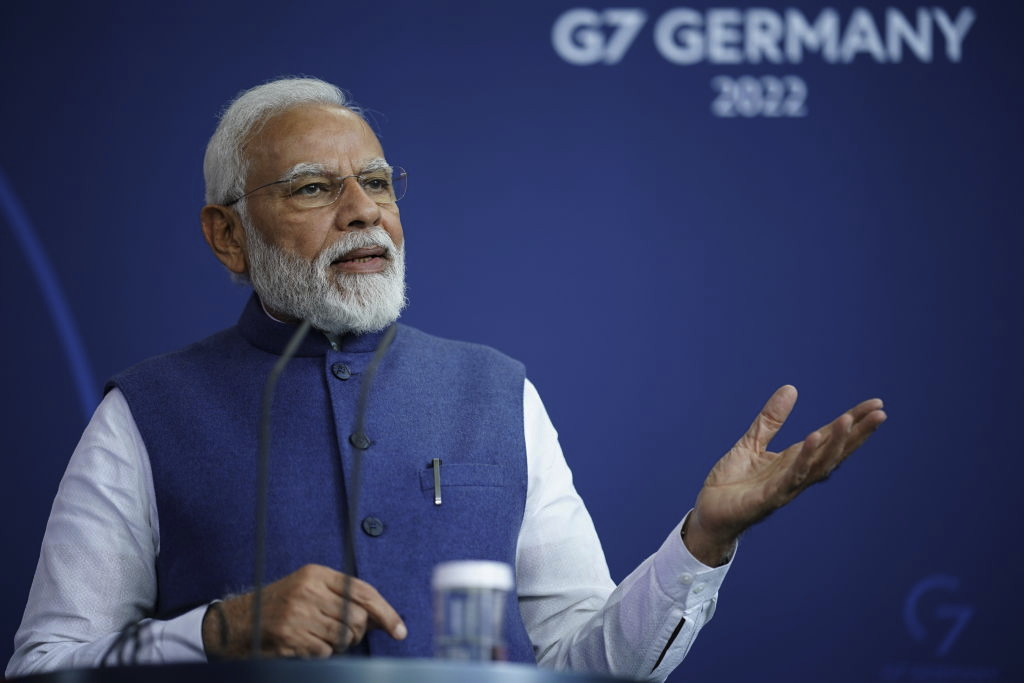by Jagdish N. Singh
Ironically, the people who seem to be discriminated against are the country's Hindu majority.
There have been reports suggesting that the government's policies target minorities, Muslims in particular... One finds, however, that the facts are far different.
In fact, after the Modi government took over, it launched a campaign to provide basic amenities to ensure educational opportunities for minorities.
Until 2014, the Ministry of Minority Affairs was just a part-time portfolio in India. Modi transformed the ministry into a full-time one.
Ironically, the people who seem to be discriminated against are the country's Hindu majority. The central government actually collects revenue from Hindu temples, but does not collect revenue from the places of worship of other religions.
Many Hindus, therefore, might even feel a bit cheated.

Ever since India's Prime Minister Narendra Modi led the Bharatiya Janata Party to power in 2014, propaganda has been making the rounds in parts of the media that the government is biased against minorities in the country.
There have been reports suggesting that the government's policies target minorities, Muslims in particular, and that in the event of any clashes between Hindus and Muslims, the government's machinery backs the former.
In a letter to Modi in April this year, more than a hundred retired senior civil servants called for an end to hate and "vigilante violence."
"The administration of law," the letter said, "instead of being an instrument for maintaining peace and harmony, has become the means by which the minorities can be kept in a state of perpetual fear."
One finds, however, that the facts are far different. There is still widespread poverty, illiteracy and squalor across India, but caring for minorities in the country is intact, in the main. In fact, after the Modi government took over, it launched a campaign to provide basic amenities to ensure educational opportunities for minorities.
Between 2014 and 2019, during Modi's first term, the representation of minorities in India's central government employment increased from about 4.9% to 9.8%. According to a recent report, minorities have been making gains, if modest ones. Until 2014, the Ministry of Minority Affairs was just a part-time portfolio in India. Modi transformed the ministry into a full-time one.
Under Modi, the government has also introduced comprehensive plans to uplift minorities. It launched various financial and livelihood programmes -- including the National Minorities Development Finance Corporation (NMDFC), Priority Sector Lending, National Urban Livelihoods Mission, and National Rural Livelihoods Mission -- to foster the financial inclusion of minorities.
During the National Executive meeting of the Bharatiya Janata Party in Hyderabad in July 2022, Modi also urged the country to address the issues of non-elite Muslims and other minorities and urgently connect them with development and welfare programmes.
The government in India, astonishingly, has even tolerated illegal land appropriation by the Muslim community. According to an estimate, there are 54 unauthorized mosques and cemeteries on state land across West Delhi alone. Mosques and cemeteries for Muslims have been mushrooming on state land, roadsides and vacant spaces, including land belonging to government departments such as the Delhi Urban Shelter Improvement Board the Gram Sabha, Delhi Development Authority and municipal corporations.
The current government in India is never weary of swearing by the philosophy of Hinduism to foster the development of entire humanity. Ironically, the people who seem to be discriminated against are the country's Hindu majority.
The government in India controls the religious affairs of Hindus. According to a report, there are 500,000 temples, 700,000 mosques and 35,000 churches in this country. The central government actually collects revenue from Hindu temples, but does not collect revenue from the places of worship of other religions.
Hindus are also discriminated against in having access to many of their temples. For instance, the government banned the Hindus' regular worship at Shringar Gauri temple of Varanasi in Uttar Pradesh in the 1990s.
Unlike minorities, the Hindus also do not have the right to establish and administer their educational institutions.
The Modi government has so far, needless to say, done little for many Hindus and Sikhs living in Jammu since they were displaced from Pakistan-occupied Kashmir in October 1947. The Indian government still has not granted those displaced people the financial compensation that it had promised them.
Many Hindus, therefore, might even feel a bit cheated.
Jagdish N. Singh is a senior journalist based in New Delhi.
Source: https://www.gatestoneinstitute.org/19249/india-minorities
No comments:
Post a Comment